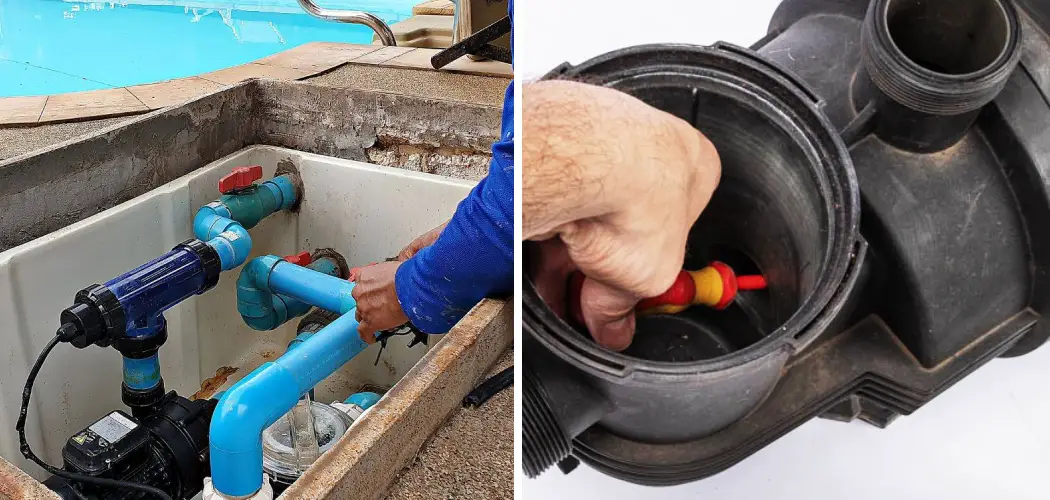A clogged pool pump is a common problem homeowners face when keeping their pools clean and debris-free. It can be frustrating to have your pool not working as it should be, but knowing how to unclog your pool pump can help you get back up and running in no time!
Unclogging a pool pump is an easy task that just takes a few steps and a little time, but it can save you a lot of money in the long run.
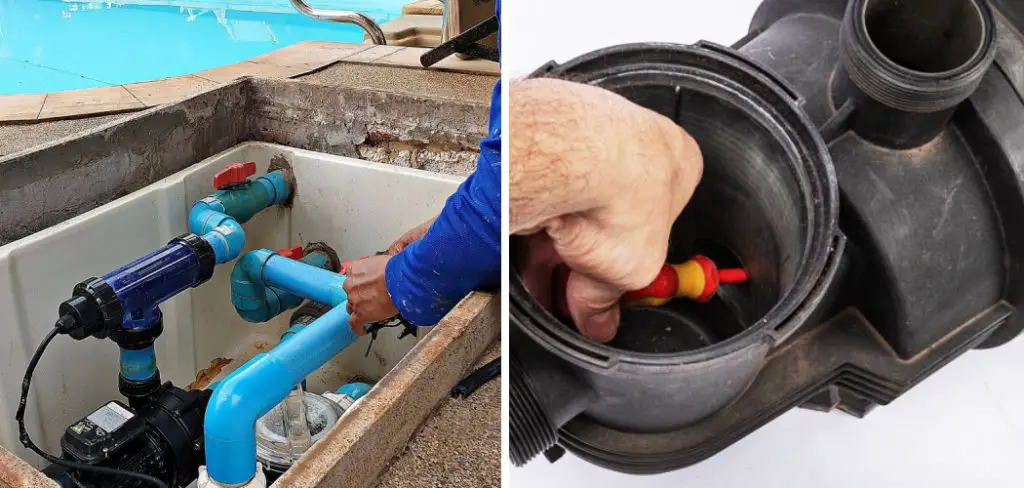
There are several advantages to knowing to unclog a pool pump. The most obvious advantage is that it will save you time and money from calling a professional or buying a new pump.
Knowing how to unclog your pool pump can also give you peace of mind, as you’ll be able to take care of the issue yourself instead of relying on someone else. In this blog post, You will learn how to unclog a pool pump.
Step-by-Step Processes for How to Unclog a Pool Pump
Step 1: Inspect the Pump
Begin by inspecting the pool pump to make sure that it is unclogged. If debris or dirt is in the strainer basket, remove it and clean it out. Be careful not to damage any of the components while cleaning.
Step 2: Check the Hoses
Check all hoses leading to and from the pump for blockages. If a hose is kinked or bent, straighten it out. If a hose is blocked, remove the blockage or replace the hose if necessary. Remove the pump lid and inspect the impeller for damage or clogging. Carefully clean out any debris that may be blocking the impeller.
Step 3: Check the Skimmer and Drain System
Inspect the skimmer and drain system for any clogs or blockages. Remove any obstructions that may be causing a problem with the pool pump. Remove all debris from the pump basket, cleaning out all corners and crevices.
Step 4: Prime the Pump
After cleaning out the pump, you’ll need to prime it. This involves filling the pump with water until all air bubbles are gone. If your pool has a filter, check that it is functioning properly and isn’t clogged. After completing all these steps, you can start the pump without issues. If there is still a problem, replacing some components of the pool pump may be necessary.
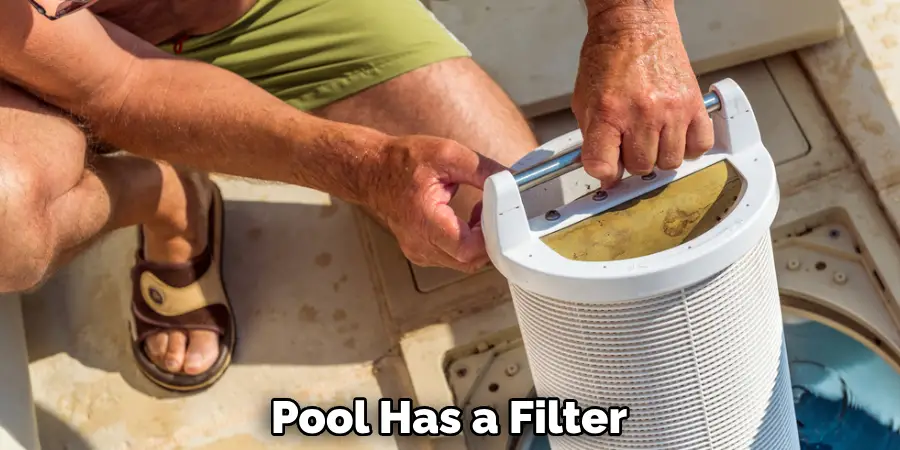
Step 5: Check for Leaks
Once the pump runs again, check for any water leaks at joints and connections. If any are found, fix them before rerunning the pump. Periodically monitor your pool pump to ensure it is running smoothly and that there are no clogs or blockages. This will help ensure your pool pump lasts as long as possible without any issues. By doing regular maintenance on your pool, you can help keep it in excellent condition.
Following these steps will help you unclog a pool pump quickly and without major issues.
Safety Tips for How to Unclog a Pool Pump
- Turn off the pool pump before starting any work on it. Wear protective gear like safety goggles and gloves when working near the pool pump.
- Disconnect the power supply from the electrical socket and unplug all cords connected to the pool pump.
- Carefully remove and inspect all materials clogged in your filter, such as twigs, leaves, and debris.
- Use a garden hose to remove any additional materials blocking your strainer basket.
- Inspect the impeller for dirt and debris clogging up your pool pump. Clean it off with a soft brush or cloth if necessary.
- Reassemble all components of the pool pump. Make sure to tighten all connections securely.
- Test the pool pump by slowly turning it on and back off to ensure no leaks or malfunctions. If everything works properly, you can turn it on at full speed for normal use.
Taking these safety precautions when unclogging a pool pump ensures your pool runs efficiently and safely. Follow these steps, and you’ll soon enjoy a clean, healthy swimming experience.
How Often Should You Check and Clean Your Pool Pump?
It’s important to regularly inspect and clean your pool pump to keep it functioning properly. You should check the pump at least once a month for signs of clogs or other issues. If the pump is clogged, try unclogging it before the problem worsens. Follow these steps to unclog a pool pump:
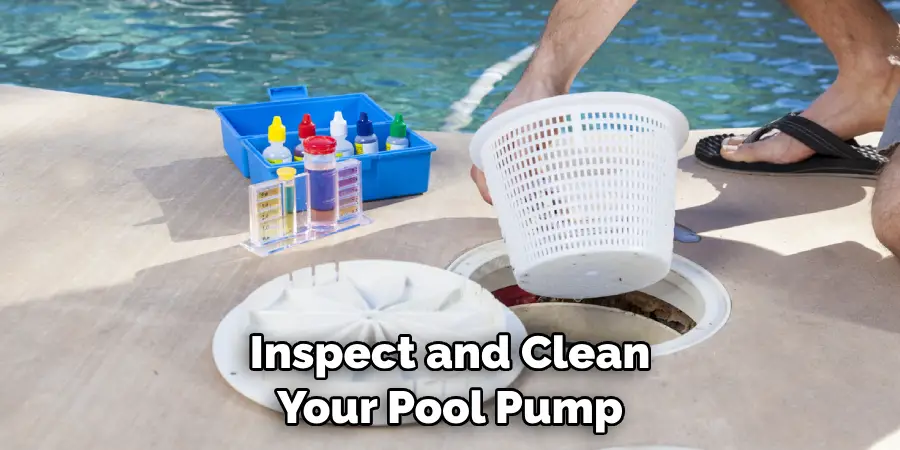
- Check the filter to ensure that it is clean and free of debris. If not, remove debris or dirt from the filter by brushing it off or using a vacuum cleaner.
- Remove the lid of the pump and check for clogs inside the piping. If you find any blockages, use a garden hose with a high-pressure nozzle to blast the clog away.
- If the clog is too deep in the pipe, you may need to use a plunger or snake to remove it.
- Test the pump after unclogging it by turning on all of the pool’s equipment and checking that everything is working properly. If not, check for any other clogs or debris blocking the pipes.
Regularly checking and cleaning your pool pump can avoid costly repairs and ensure that your pool is functioning properly. Taking the time to unclog a pool pump is an important part of regular maintenance and can save you time and money in the long run.
Are There Any Chemical Solutions That Can Help Unclog a Pool Pump?
The unfortunate answer to this question is, not really. While some chemical treatments claim to help clear clogs from pool pumps, most of these are ineffective. Many of these chemical “solutions” require you to disassemble the pump and apply the chemicals directly to the impeller. This can be extremely difficult and potentially dangerous if done incorrectly.
The best way to unclog a pool pump is to remove any debris from the impeller and housing manually. This can be done with tweezers or using a small brush if necessary. Unfortunately, it’s often not always easy to locate the source of an obstruction in the pump itself.
If you have difficulty unclogging a pump, it’s usually best to call in a professional. A pool technician will be able to determine the root cause of the problem and use specialized tools and techniques to help clear out any clogs or blockages.
No matter what method you choose for unclogging your pool pump, make sure that you follow all safety precautions and instructions for doing so. Unclogging a pool pump can be dangerous, and it’s always best to leave the job to someone who knows how to do it safely and correctly.
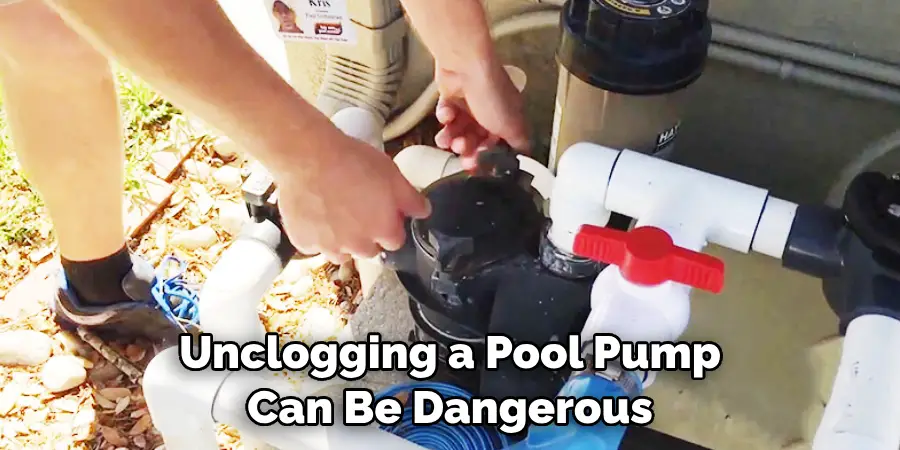
Are There Other Steps You Should Take to Prevent Clogs in the Future?
Yes. To prevent clogs from occurring, it’s important to keep the pool skimmer and pump baskets clean. Regularly check these areas and remove any debris that has been collected there. Additionally, you should clear the area around the skimmer frequently and inspect your hoses for blockages. These simple tasks will help keep your pool pump running smoothly and can help prevent future clogs.
It’s also a good idea to backwash your filter regularly. Backwashing helps flush away any dirt or debris that has been gathered in the filter, which can help reduce clogging in your system.
Lastly, ensure that your pool water chemistry is balanced, as unbalanced pool chemistry can lead to problems with your filter, resulting in clogs. Following these simple steps and regularly checking that there are no blockages in your pump and h will help keep your pool running smoothly and reduce the need for future unclogging.
What Are Some Signs That Your Pool Pump Might Be Clogged?
Several signs may indicate that your pool pump is clogged. If you notice a sudden decrease in water pressure, it could indicate that something is blocking the water flow through the filter or pump. If your pool pump motor starts making loud noises or humming sounds, this could also be a sign that something is clogging the system.
Additionally, if your pool is not being filtered or the water circulation is weak, it could be due to a clog in your pump. If any of these issues become apparent, it’s important to take action quickly to unclog your pool pump and restore normal operation.
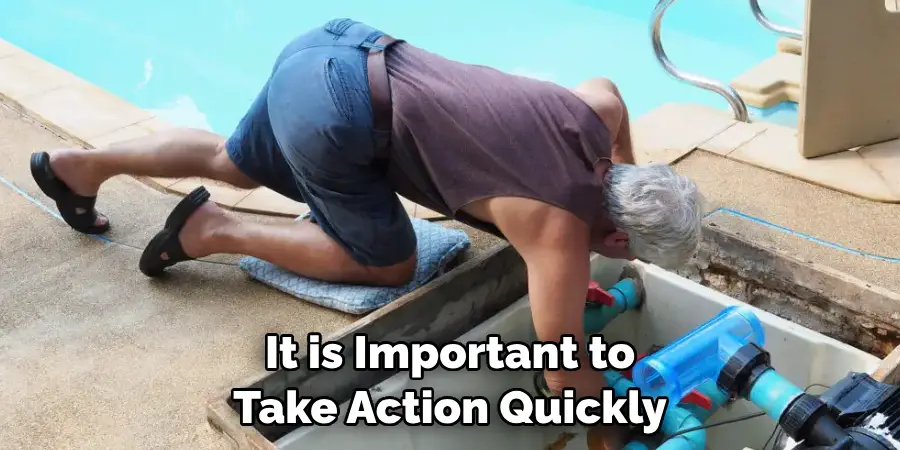
If left unchecked, a clogged or blocked pool pump can lead to problems such as poor water circulation, inefficient filtration, and increased chemical usage. In extreme cases, the pump may become overheated or burn out if unclogged quickly.
Conclusion
In conclusion, unclogging a pool pump can be challenging and time-consuming for those who need to become more familiar with the inner workings of their pool system. Knowing how to identify an issue with your pump and understand the steps necessary to unclog it properly is important.
Utilizing the steps outlined above, you will have the knowledge and tools to unclog your pool pump successfully. This article has been beneficial for learning how to unclog a pool pump. Make Sure the preventive measures are followed chronologically.

